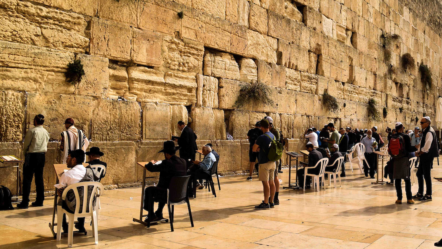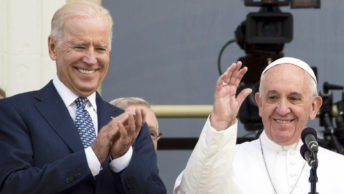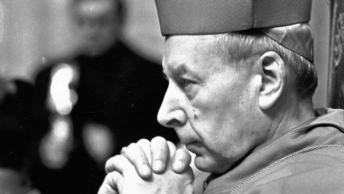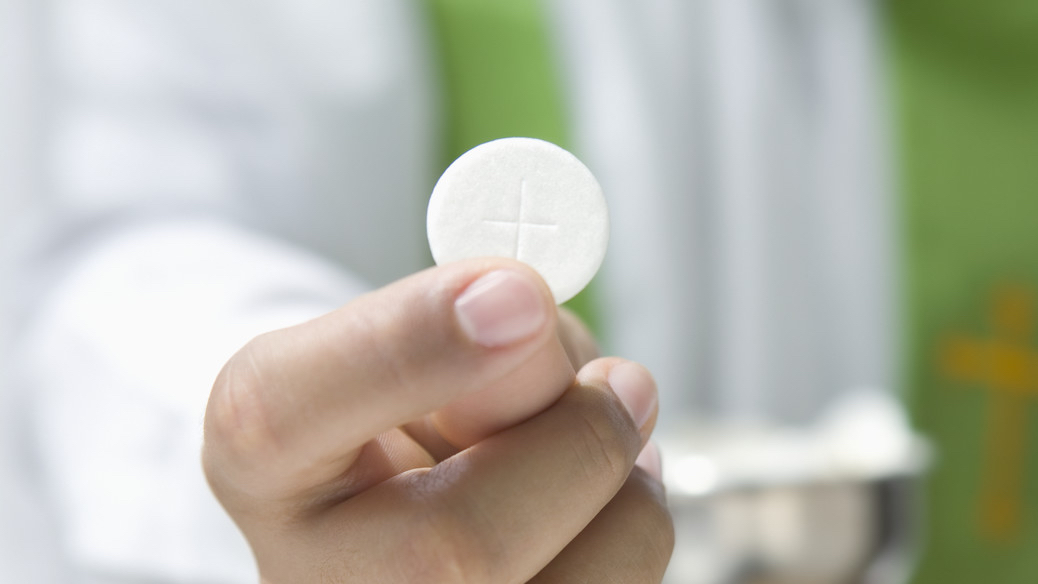Twenty-six years ago, I visited the Temple’s Wailing Wall in Jerusalem. There I witnessed a disturbing sight; it was a roadshow of sort. Some very devout Jews tried their best to draw everyone’s attention as they, with the help of their attendants, put on quite wide phylacteries on their foreheads and on their left forearms. Phylacteries are leather cases containing some passages of the Torah, held on the forehead and on the left forearms by leather straps. After donning their cloak with long tassels and making sure that they got all the attention they could get, they proceeded to pray making an exaggerated rocking motion, so much so that I wondered if they were trying to snap their back.
I felt visibly disturbed by their show. To me it was anything but prayer. Yet, those “devout” Jews must have been deeply certain that they were indeed praying. Contrast, if you will, that showmanship with the reserved, quiet, silent prayer of a contemplative cloister nun, and you have the two extremes.
The Gospel passage (Matthew 23:1-12) for the Thirty-first Sunday in Ordinary Time offers us other contrasts between what might have been the way preferred by Jewish communities at that time, and the Early Church in worshipping God. Or we can also compare the attitude of those who practice what they preach, to the one of those who merely claim to do so.
We can compare the humility of those who admit that they do not know how to pray and, consequently, let the Holy Spirit pray in them, to the attitude of those who choose to draw attention upon themselves even in the most sacred activity of addressing God in prayer.
We can compare those who preach by their unassuming, humble example to those who tell others what to do but find loopholes to exempt themselves from the same.
We could compare those who draw close to others and feel their pain to those who shrug their shoulders and show indifference.
We can put the group of those who enjoy serving and attending to people’s needs in person and contrast it to the group of those who love to give orders from behind a desk and expect accolades, and recognition.
The list of similar contrasts can be quite long.
Alas, we too might feel tempted to draw attention upon our accomplishments to get recognition and secure praise for ourselves. However, we know that it cannot be that way for those who are serious about following Jesus. It becomes, quickly, very clear that Jesus makes the difference between the two groups.
Jesus must be our only Rabbi; Jesus our only Teacher; Jesus our only Master. He is such because he learned obedience from what he suffered for us. He teaches by example in carrying his cross, ahead of us all, who should follow him carrying ours. He is our Master because he came to serve and not to be served, to give his life in ransom for the many.
The Evangelist John does not have an account of the Last Supper, of the first Eucharist. In its place, he leaves us the account of a disturbing action performed by Jesus. It is so disturbing that Simon Peter refuses to have it done to him. Jesus gets up from the table, dons an apron and proceeds to wash his disciples’ feet. He performs the task reserved for the lowliest slave of a household.
During the Eucharist, during the representation of the Last Supper, we are served by the Lord his very flesh as spiritual food, his very blood as spiritual drink, so that we, too, may find the right motivation to offer our bodies to be “broken” for others and have our blood “poured out” in our caring for others—within our communities.
May we resolve to be communities in which all consider themselves siblings and interact with each other as such. May we choose to become communities in which we do not have a privileged few with all the answers, but a unified group determined to search for the Truth together in humility and docility of heart. May we long to become communities in which the higher the position held, the more one would feel privileged to attend to the needs of the least. May we pray to build communities in which greatness is measured by one’s insignificance, in which seniority and tenure apply only to loving more and to serving with increased dedication.
And regarding priests, may all priests be mindful of the words of St. Paul: In the same way, the Lord ordered that those who preach the gospel should live by the gospel. (1 Corinthians 9:14) Then in verse 27 he adds: No, I drive my body and train it, for fear that, after having preached to others, I should be disqualified. (1 Corinthians 9:27)
Hence, I ask that you pray for all priests so that we may become truly worthy of the title of Father in the sense described by St. Paul in 1 Corinthians 4:15, that is in the sense of being an effective channel of grace so that the divine life may flow to you from its only source: our Heavenly Father.
Through your prayers and abundant divine grace, may we priests do our very best to lead everyone to be active members of the Church, the divine Family whose only Father is in Heaven, yet, also always close to us even on this earth.








